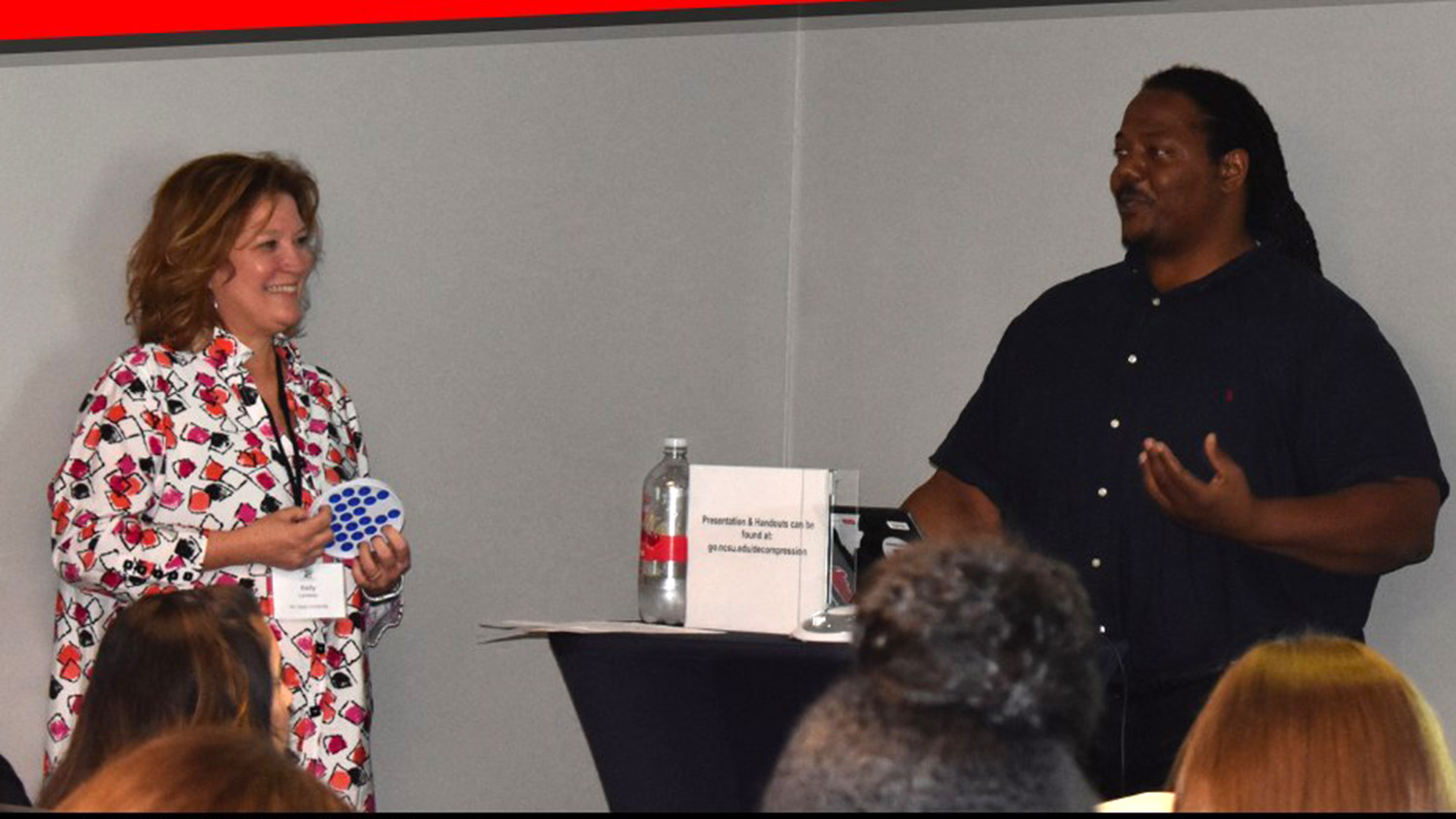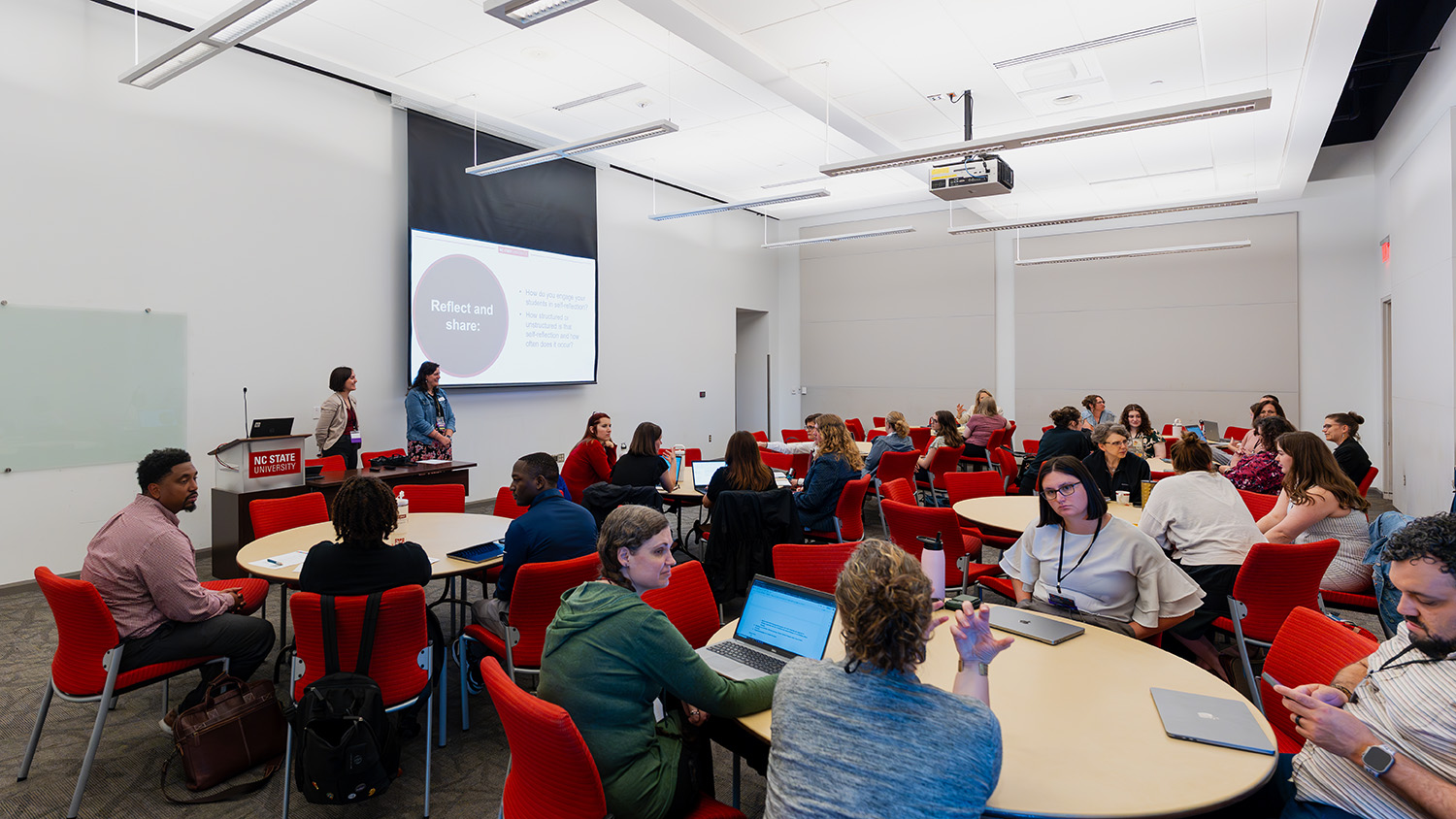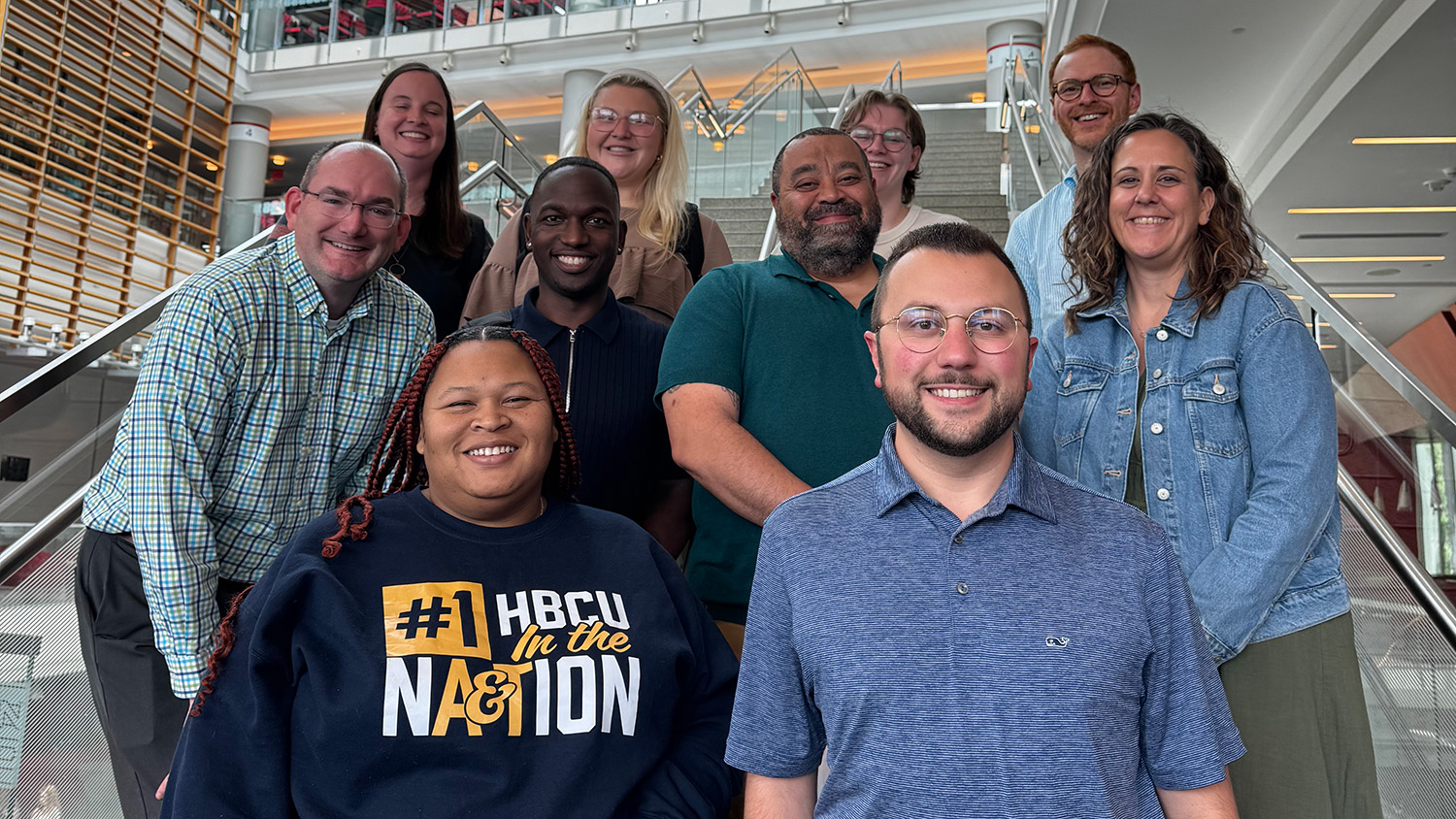Supporting Neurodivergent Students: Insights from Kelly Laraway and Sidney Fletcher at the NCACE Conference

At the recent North Carolina Association for Colleges and Employers (NCACE) Conference, DASA colleagues Kelly Laraway and Sidney Fletcher presented on “Supporting Neurodivergent Students through Decompression Spaces and Clear Communication.”
Their session, held on May 16, offered valuable insights and practical strategies for enhancing the educational experiences of neurodivergent students. As awareness of neurodiversity in educational settings grows, so does the need for effective support systems. Laraway and Fletcher’s presentation provided a roadmap for career development centers aiming to foster a more inclusive environment.
Laraway and Fletcher highlighted several challenges neurodivergent students face, including sensory sensitivities, social and communication differences, executive functioning challenges, career development issues and difficulties with receiving and processing clear communication.
From their work with the OnePack Empowered program, they identified common themes such as lack of confidence, high anxiety, ADHD paralysis and the need for time management skills, motivation, and mental health support.
Specific strategies for clear communication included:
- Use of plain language and concrete instructions
- Providing advance notice for changes or transitions
- Offering visual supports
- Allowing extra time for processing and response
In the second half of the presentation, Laraway and Fletcher emphasized the importance of decompression spaces, which are designed to offer sensory experiences that promote relaxation and well-being.
These spaces typically feature diverse sensory stimuli such as lighting effects, sounds, textures, colors and interactive elements. Benefits include stress reduction, mental health support, enhanced academic performance and a sense of belonging.
The response to their presentation was overwhelmingly positive, with many attendees eager to implement these strategies. Supporting neurodivergent students through decompression spaces and clear communication is essential for creating an inclusive and effective educational environment. The presentation and handouts can be found at go.ncsu.edu/decompression
- Categories:


